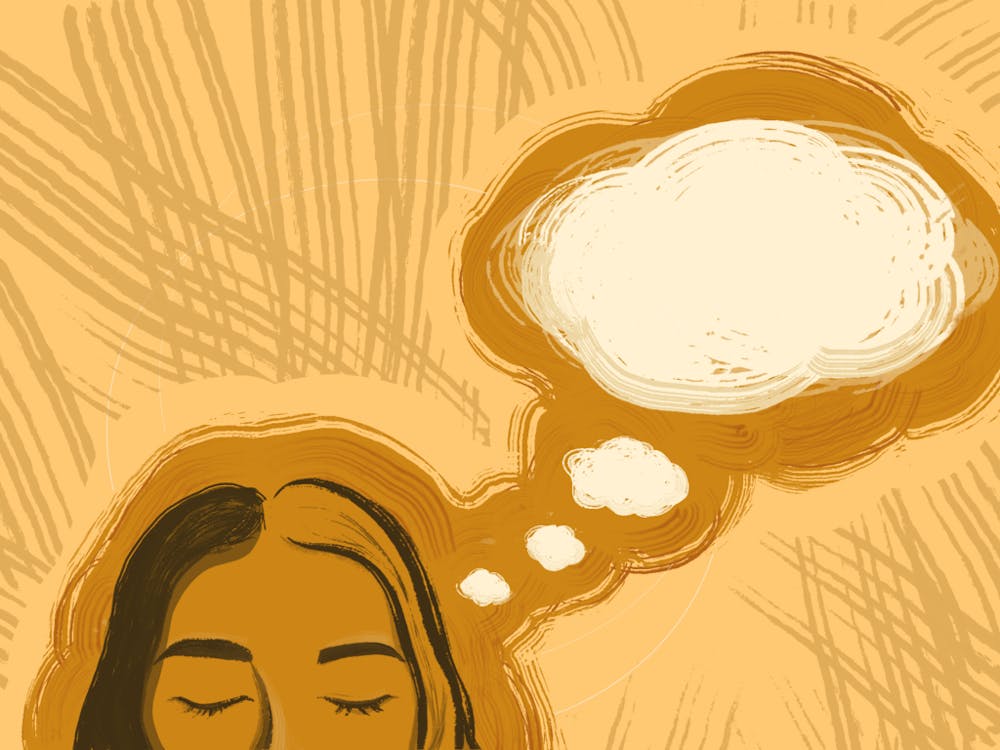The mind is one of the most critical parts of your body. A healthy life rests on a healthy mind. As we begin the new year and new semester, we should all practice mindfulness to reduce our stress levels and live healthier.
Street sat down with Mara Wai, the associate director of the Penn Program for Mindfulness who has worked there since 2005. The program, which was created 29 years ago, focuses on mindfulness–based stress reduction.
For someone completely unfamiliar with mindfulness, Wai defines it as "present moment awareness.”
The mindfulness program’s primary offering is “Mindfulness–Based Stress Management,” an eight–week program. The course is offered in a group format, and it helps teach personal mindfulness, which can then be employed in the participants’ lives to manage stress they encounter.
Throughout the program, people not only improve their mindfulness skills but also discuss the process as they go. They learn how to notice stress and their experience with it, as well as how to practice mindfulness at home.
"Through the application of mindfulness, through the practice of mindfulness, which involves bringing your attention into the present moment, there’s a way that that relationship to the event or the stressor begins to shift naturally," says Wai.
One of the most important components of mindfulness is attention. Improving this important skill can be approached like strengthening a muscle. “Through that process of applying attention … there’s a way that attention becomes stronger,” Wai says.
Naturally, attention is very sensitive, and can be consumed and diverted very easily. Practicing mindfulness teaches people how to stabilize attention, which allows them to be more present.
At the end of the day, practice is the best way to improve mindfulness, and there are things you can do day-to-day to do so. One way is to intentionally bring and rest your attention on some support, repeatedly. Discomfort can be an obstacle in this practice. Wai continues, “A basic … core tenant … in mindfulness practice is allowing whatever it is that is found to exist.”
Everyone’s minds are constantly thinking and generating, which we must notice and allow.
Mindfulness is a way of living, and anyone can do it. Mindfulness meditation has many positive side effects, one of which is increased productivity. This is just one example of a way to implement mindfulness. Feeling your breath is another important way you can practice this.
In a remote world, where keeping focused is more difficult than ever, there are adjustments to make to practice this. One piece of advice is to avoid perfectionism—don’t expect incredible, immediate results. For example, people may expect that their thoughts will go away, but that’s not the case. They may first just notice discomfort or difficulty.
"Some advice might be to just relax," says Wai. "Don’t give yourself a hard time. Don’t even have great expectations—don’t have any expectations.” It takes time to change habits; it won’t happen overnight.
Since the onset of the pandemic, some of the statistics surrounding mental health, especially for the age range within which college students are classified, have been startling and disheartening. An August report from the Centers for Disease Control and Prevention found that 75% of young adults struggled with mental health during quarantine. Fortunately, mindfulness is one step towards improving mental wellness during this time.
While mindfulness may not be the ultimate problem–solving solution, it is a tool to help people notice their emotions more. “Mindfulness is like shining a flashlight," Wai says. Paying attention allows awareness to arise, and people can seek the help they need.
“If people are really having difficulty, what mindfulness can do is help people to notice that more clearly," says Wai. "And what they might notice is that they need support."
For more information on the Penn Program for Mindfulness, check out its website or send an email.







